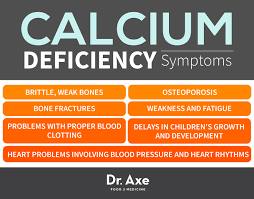Causes of Failure to Ovulate
Causes of Failure to Ovulate
Brought to U....http://successgain.us and http://successgain.info
My memories
Causes of Failure to Ovulate
Posted in 2013
Brought to U....http://successgain.us and http://successgain.info
My memories
Causes of Failure to Ovulate
Posted in 2013
Causes of Failure to Ovulate
Hormonal Problems
These are the most common causes of anovulation. The process of ovulation depends upon a complex balance of
hormones and their interactions to be successful, and any disruption in this process can hinder ovulation. There are three
main sources causing this problem:
Failure to produce mature eggs
In approximately 50% of the cases of anovulation, the ovaries do not produce normal follicles inwhich the eggs can mature. Ovulation is rare if the eggs are immature and the chance of fertilization becomes almost nonexistent. Polycystic ovary syndrome, the most common disorder responsible for this problem, includes symptoms such as amenorrhoea, hirsutism, anovulation and infertility. This syndrome is characterized by a reduced production of FSH, and normal or increased levels of LH, oestrogen and testosterone. The current hypothesis is that the suppression of FSH associated with this condition causes only partial development of ovarian follicles, and follicular cysts can be detected in an ultrasound scan. The affected ovary often becomes surrounded with a smooth white capsule and is double its normal size. The increased level of oestrogen raises the risk of breast cancer.
Malfunction of the hypothalamus
The hypothalamus is the portion of the brain responsible for sending signals to the pituitary gland, which, in turn, sends hormonal stimuli to the ovaries in the form of FSH and LH to initiate egg maturation. If the hypothalamus fails to trigger and control this process, immature eggs will result. This is the cause of ovarian failure in 20% of cases.
Malfunction of the pituitary gland
The pituitary's responsibility lies in producing and secreting FSH and LH. The ovaries will be unable to ovulate properly if either too much or too little of these substances is produced. This can occur due to physical injury, a tumor or if there is a chemical imbalance in the pituitary.
Hormonal Problems
These are the most common causes of anovulation. The process of ovulation depends upon a complex balance of
hormones and their interactions to be successful, and any disruption in this process can hinder ovulation. There are three
main sources causing this problem:
Failure to produce mature eggs
In approximately 50% of the cases of anovulation, the ovaries do not produce normal follicles inwhich the eggs can mature. Ovulation is rare if the eggs are immature and the chance of fertilization becomes almost nonexistent. Polycystic ovary syndrome, the most common disorder responsible for this problem, includes symptoms such as amenorrhoea, hirsutism, anovulation and infertility. This syndrome is characterized by a reduced production of FSH, and normal or increased levels of LH, oestrogen and testosterone. The current hypothesis is that the suppression of FSH associated with this condition causes only partial development of ovarian follicles, and follicular cysts can be detected in an ultrasound scan. The affected ovary often becomes surrounded with a smooth white capsule and is double its normal size. The increased level of oestrogen raises the risk of breast cancer.
Malfunction of the hypothalamus
The hypothalamus is the portion of the brain responsible for sending signals to the pituitary gland, which, in turn, sends hormonal stimuli to the ovaries in the form of FSH and LH to initiate egg maturation. If the hypothalamus fails to trigger and control this process, immature eggs will result. This is the cause of ovarian failure in 20% of cases.
Malfunction of the pituitary gland
The pituitary's responsibility lies in producing and secreting FSH and LH. The ovaries will be unable to ovulate properly if either too much or too little of these substances is produced. This can occur due to physical injury, a tumor or if there is a chemical imbalance in the pituitary.
My advise
1.. Drink sufficient water
2... Eat healthy food
3... Avoid negative thoughts and practice positive thoughts
4.. Be happy with your life partner
Brought to you http://successgain.us




Comments
Post a Comment